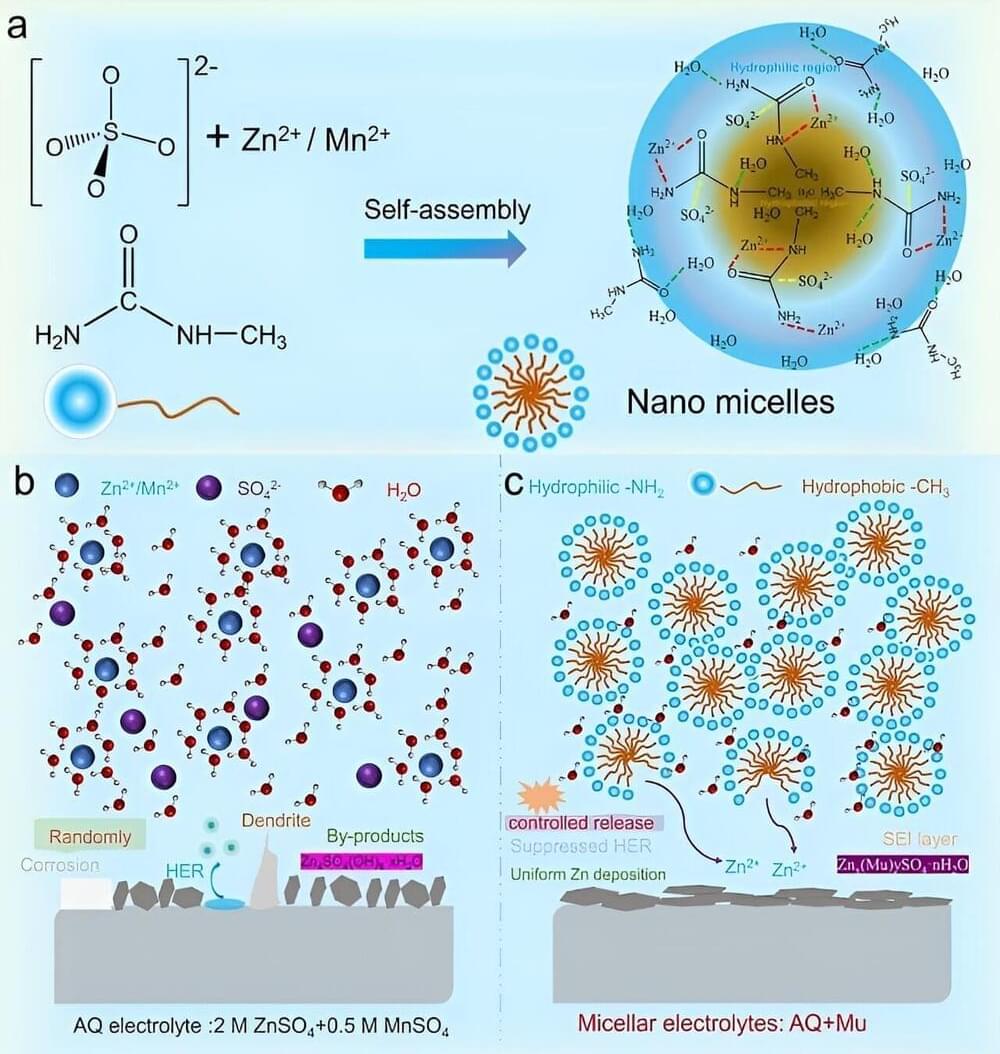A research team led by Prof. Yan Lifeng from the University of Science and Technology of China (USTC) of the Chinese Academy of Sciences (CAS) has designed a water-based nanomicellar electrolyte by using methylurea (Mu). The results were published in the Journal of the American Chemical Society.
Aqueous zinc ion batteries (AZIBs) are competitive candidates for clean energy storage, but they are severely limited by the irreversible electrochemical reaction of the zinc anode. Therefore, it is a crucial issue to explore how to regulate the electrochemical performance of AZIBs through electrolyte design optimization.
In this paper, the researchers proposed a unique design of nanomicellar electrolyte, which comprises ZnSO4, MnSO4 and a high concentration of Mu molecules through a self-assembly strategy, where the aqueous-solvent environment is partitioned into hydrophilic and hydrophobic regions, and cations and anions are encapsulated into nanodomains.









Comments are closed.